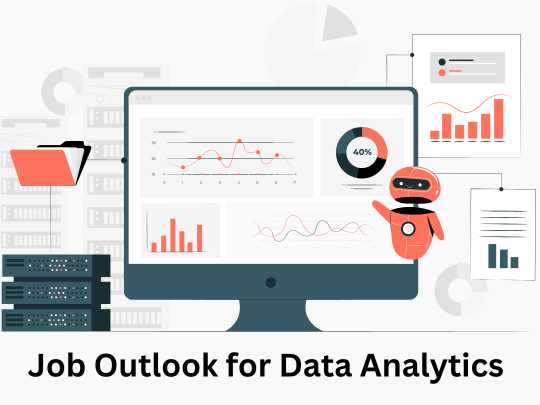Introduction: The Evolution of Data Analytics
In an era defined by digitization and information abundance, the field of data analytics has emerged as a linchpin for decision-making and innovation. As we delve into the intricate landscape of job opportunities in data analytics, it is imperative to understand the historical evolution of this dynamic field.
Historical Perspective
The roots of data analytics can be traced back to the early days of computing, where rudimentary statistical methods were employed for analysis. Over the decades, advancements in technology, coupled with an exponential increase in data generation, have propelled data analytics to the forefront of various industries.
The Current Landscape
Data Analytics Demo
In the present day, data analytics stands as a cornerstone of strategic planning for organizations across the globe. The sheer volume and complexity of data available have given rise to an unprecedented demand for skilled professionals who can transform raw information into actionable insights.
The Driving Forces Behind the Demand
Industry-Specific Demand
One of the primary driving forces behind the escalating demand for data analytics professionals is the sector-specific applications of analytics. Industries such as Information Technology, Healthcare, Finance, and E-commerce are leveraging data analytics to gain a competitive edge, enhance operational efficiency, and uncover valuable insights into consumer behavior.
Technological Advancements
The relentless march of technology, including Artificial Intelligence (AI) and Machine Learning (ML), has significantly augmented the capabilities of data analytics. Businesses are now able to deploy sophisticated algorithms to analyze vast datasets, opening new frontiers for predictive modeling, pattern recognition, and data-driven decision-making.
Data-Driven Decision-Making
The paradigm shift towards data-driven decision-making has been a transformative force. Organizations are increasingly relying on analytics to inform strategic choices, optimize processes, and gain a deeper understanding of market dynamics. This shift has elevated the importance of data analytics professionals who can interpret complex data sets and provide actionable insights.
Startups and Innovation
In the realm of startups and innovative enterprises, data analytics plays a pivotal role in driving disruption. Startups leverage analytics for market analysis, customer profiling, and product optimization, thereby creating a surge in demand for professionals with expertise in data science and analytics.
Regional Perspectives
Global Trends
The global landscape of data analytics is marked by dynamic trends that vary across different regions. The adoption of analytics, industry priorities, and technological landscapes contribute to the unique job outlook in each region.
Challenges and Opportunities in Specific Regions
Exploring regional variations in the adoption of data analytics provides insights into the challenges and opportunities faced by professionals. North America, Europe, Asia, and other regions exhibit distinct trends in terms of industry focus, technology adoption, and skill requirements.
Education and Skill Development
Educational Initiatives
Educational institutions and training providers play a pivotal role in shaping the workforce for data analytics. Specialized courses and certifications are designed to equip individuals with the skills demanded by the industry.
Skill Requirements and Emerging Roles
The skill requirements in data analytics are diverse and evolving. Beyond traditional analytical skills, professionals need proficiency in programming languages, statistical methods, and the ability to interpret results. Emerging roles within the field include Data Engineer, Machine Learning Engineer, and AI Specialist.
The Impact of Government Initiatives
National Strategies
Governments around the world are formulating national strategies to foster the growth of data analytics. Initiatives such as the National Data and Analytics Platform (NDAP) and the National Strategy for Artificial Intelligence (NSAI) are indicative of a commitment to creating an environment conducive to the expansion of the analytics sector.
Policy Considerations
Policies related to data privacy, security, and ethical practices are crucial in shaping the data analytics job market. Responsible data handling practices are becoming paramount, necessitating a balance between innovation and ethical considerations.
Also, check this data analysis courses in Hyderabad to start a career in Data Analytics
The Role of Data Analytics in Transformative Technologies
AI and Machine Learning
The integration of data analytics with transformative technologies like AI and ML is reshaping the landscape. The symbiotic relationship between these technologies and data analytics is giving rise to new possibilities and career opportunities.
Blockchain and IoT
The intersection of data analytics with blockchain and the Internet of Things (IoT) opens avenues for professionals in analytics to explore novel applications. The evolving roles within these domains underscore the adaptability required in the ever-changing field of data analytics.
Challenges and Ethical Considerations
Challenges in the Field
While the prospects for data analytics are promising, there are challenges that professionals and organizations must navigate. Issues such as data quality, integration complexities, and the need for continuous upskilling pose hurdles in the path to successful analytics implementation.
Don’t delay your career growth, kickstart your career by enrolling in this data analyst course fees in Chennai with 360DigiTMG Data Analytics course.
Ethical Considerations
The ethical use of data is a growing concern in the field of data analytics. Professionals need to navigate issues related to privacy, bias in algorithms, and responsible data collection and analysis practices to ensure the trustworthiness of analytics outcomes.
Future Trends and Predictions
Technological Evolution
Predicting the future of data analytics involves anticipating how technological advancements will shape the landscape. Emerging trends such as edge analytics and real-time data processing are poised to redefine the boundaries of what is possible in data analytics.
Industry-Specific Projections
As industries continue to evolve, projections for job opportunities in data analytics will also transform. Understanding the evolving needs of specific industries is crucial for professionals seeking to align their skill sets with future demands.
Empowering the Workforce: Bridging the Skills Gap
The exponential growth of data analytics has created a robust demand for skilled professionals, but it has also accentuated the existing skills gap. Addressing this gap is essential for ensuring that the workforce is adequately equipped to meet the evolving needs of the industry.
360DigiTMG’s Role in Skill Development
As an industry leader in data analytics education, 360DigiTMG plays a pivotal role in bridging the skills gap. Offering specialized courses that cover a spectrum of data analytics topics, from fundamental concepts to advanced techniques, 360DigiTMG ensures that individuals are equipped with the skills demanded by the industry.
Industry-Aligned Curriculum
To keep pace with the dynamic nature of the field, 360DigiTMG continually updates its curriculum. By incorporating the latest tools, technologies, and methodologies, the institution ensures that its graduates are not only proficient in traditional analytics but are also well-versed in emerging trends such as AI and machine learning. This industry-aligned curriculum positions students to seamlessly integrate into the workforce and contribute meaningfully to organizational goals.
Corporate Training Initiatives
360DigiTMG extends its expertise beyond traditional education to corporate training initiatives. By tailoring programs to suit the specific requirements of organizations, 360DigiTMG facilitates the development of in-house data analytics capabilities. This approach not only benefits individual professionals but also contributes to building a data-savvy corporate culture, aligning with the industry’s growing need for in-house analytics expertise.
Government Initiatives and Policy Support
Recognizing the critical role of data analytics in shaping the future, governments worldwide are implementing initiatives and policies to support the growth of the industry.
NDAP and Data Accessibility
The National Data and Analytics Platform (NDAP) is a prime example of a government initiative aimed at enhancing data accessibility. By providing a centralized platform for various government departments to share and access data, NDAP fosters collaboration and creates opportunities for data analytics applications in governance, public services, and decision-making.
Kickstart your career by enrolling in this data analyst course in Bangalore.
NSAI and AI Development
The National Strategy for Artificial Intelligence (NSAI) outlines a roadmap for the development and adoption of artificial intelligence in India. As data analytics and AI are closely intertwined, this strategy aligns with the broader goal of positioning India as a global leader in emerging technologies. Government support of such initiatives is instrumental in creating a conducive environment for the growth of data analytics.
Challenges and Considerations: Ensuring Ethical Practices
As the field of data analytics expands, it brings forth challenges related to ethics, privacy, and security. India, like other nations, must navigate these considerations responsibly to build trust in data analytics applications.
Looking forward to becoming a Data Analyst? check out the best data analytics courses in Pune and get certified today.
Ethical Use of Data
With the increasing volume of data collected and analyzed, there is a heightened responsibility to ensure the ethical use of this information. Safeguarding individuals’ privacy, avoiding biased algorithms, and adhering to ethical standards in data collection and analysis are paramount.
Data Privacy and Security
Ensuring the security and privacy of sensitive information is a critical consideration. As India progresses in its data analytics journey, robust measures need to be in place to protect against data breaches and unauthorized access. Implementing strong cybersecurity practices and adhering to international data protection standards are imperative.
Global Collaboration and Knowledge Exchange
In an interconnected world, collaboration with the global community is essential for staying at the forefront of data analytics advancements.
Research and Innovation Partnerships
Collaborations between Indian institutions and global research centers can foster innovation in data analytics. Joint research initiatives and knowledge exchange programs enable the sharing of best practices, cutting-edge research, and the development of solutions to complex challenges.
Participation in International Forums
Active participation in international conferences, forums, and collaborative projects allows India to showcase its expertise, learn from global experiences, and contribute to the evolving discourse on data analytics. This engagement promotes a culture of continuous learning and adaptability, ensuring that the workforce remains abreast of international standards and innovations.
Conclusion: Paving the Way for a Data-Driven India
Data Analytics Placement Success Story
The comprehensive exploration of the job outlook for data analytics in India underscores the transformative impact of this field on industries, governance, and innovation. The collaborative efforts of educational institutions, industry stakeholders, government bodies, and global partners are pivotal in shaping the landscape.
As India positions itself as a global player in data analytics, the focus on education, ethical practices, and global collaboration becomes paramount. The journey towards a data-driven future is not without challenges, but with strategic initiatives, a skilled workforce, and a commitment to responsible data practices, India is well poised to shape a future where data analytics propels innovation, informs decisions, and drives sustainable growth. The evolving narrative of data analytics in India reflects not only the present state of the industry but also the immense potential for growth, innovation, and positive societal impact in the years to come.
Navigate To
360DigiTMG — Data Analytics, Data Science Course Training in Chennai
Address: 1st Floor, Santi Ram Centre, Tirumurthy Nagar, Nungambakkam, Opposite to Indian Oil Bhavan, Chennai, Tamil Nadu 600006
Phone: 1800-212-654321
Email: enquiry@360digitmg.com
Here are some resources to check out:What Is Google Cloud Platform? : Components and Deployment steps




